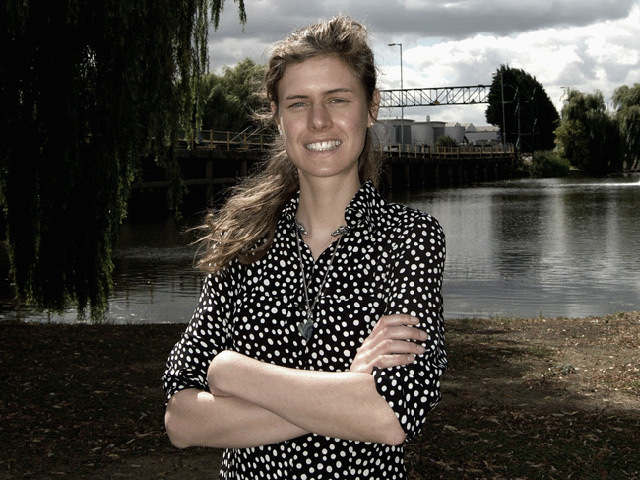
Name: Matilda Urie
Age: 28
Where are you from? Brookfield, Vermont, USA
Where do you live? Birmingham, UK
Qualifications and where studied? Mechanical Engineer, Northeastern University, Boston, USA. Graduated 2009.
What is your job? Windfarm Project Developer at E.ON.
What does it involve? Working in onshore wind development. Currently, I have two projects on the go, both in Scotland, One of which involves conducting pre-construction activities, the other is still waiting for planning permission.
Why did you choose your career in the renewables sector? Sustainability is very important to me.
How do you think things are changing in the renewables sector? Operational maintenance is going to become increasingly important and I see lots of job opportunities coming up there. Companies developing windfarms need to have them running and producing electricity, and all of the proposed windfarms will need mechanical and electrical engineers to maintain them. The offshore windfarms being built now will need engineers to look after them and maintain them as well.
I think re-powering some of the older onshore windfarms that are about will also become a big area, and engineers will certainly be needed to take down old turbines and replace them with more modern technology.
How did your education help prepare you? I was given the opportunity to prove myself via internships whilst an undergraduate.
What are the best and worst bits of your job? Managing a successful windfarm project from concept to construction is the best. There are no bad parts of my job.
Who or what has influenced you in your career to date? My colleague Hayley Meadley has inspired me by being an immensely considerate developer who truly cares for the environment and all living things.
Where do you see your career going? With E.ON’s support, I’ve been following a formal programme of professional development over nearly five years with the Institution of Mechanical Engineers, to become a chartered mechanical engineer. I’d say this is well worth doing after graduation as it demonstrates to employers that you’re serious about engineering as a long-term career.
I see myself moving from planning projects, securing approval for them and getting them built to working in operations and maintenance. It’s good to have seen a project come online right from the initial stages, but operational maintenance is more in line with my degree specialism.
What advice would you give to others looking to get into the oil and gas industry? I’d recommend internships as a good route into renewables. I interned firstly with Scottish Water’s energy and procurement team, looking into the feasibility of putting windfarms on to land assets they own around pumping stations and reservoirs. It was while I was doing this that I learnt more about E.ON, which was looking to develop a wind farm on Scottish Water land.
Internships can lead to employment. After I finished a six-month internship with E.ON, I completed my degree and then rejoined the company.
Recommended for you
